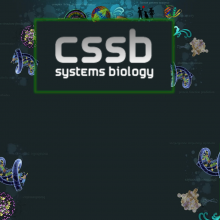
Welcome to the School of Biological Sciences at Georgia Tech. Learn about graduate and undergraduate programs, our research, upcoming events and news — and dive into a new magazine by the College of Sciences.
Recent News

The team used a computational math theory to identify gene-gene interactions that may be good targets for treating basal-like cancers that are resistant to traditional hormone therapies.

Inaugural College of Sciences research conference and symposium showcases Georgia Tech’s contributions to climate research and solutions.

Their awards total more than $9.5 million in funding, the most Georgia Tech has ever had in the program.

Students from all six College of Sciences schools were recognized for excellence at this year's celebration.
Upcoming Events
Experts in the News
Nature Index | 2024-03-20T00:00:00-04:00
NPR | 2024-03-13T00:00:00-04:00
Spark: College of Sciences at Georgia Tech










